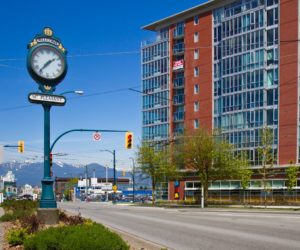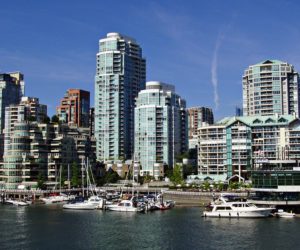For the last couple of years, Vancouver has been a leader in building high-density residential buildings using shipping containers. Because of the Vancouver housing market, there is much demand for economical housing, and using low-cost shipping containers is one creative solution.
In 2013, a non-profit society built Canada’s first social-housing development utilizing recycled steel shipping containers. The first 3-storey development stands at 502 Alexander Street and has 12 self-contained units for people of low-income.
Another shipping container unit was built several years later on Hawks Avenue and is rented out for $375 for singles and $570 for families. The size of these suites range from 280 square feet to 420 square feet which can fit two-bedrooms.
The city is behind projects like these and wants to see 600 more units built at a cost of $45 million to shelter the city’s homeless. These container units would be built throughout the city.
The construction cost for the self-contained apartments is roughly $82,500 per unit. This compares to a typical price of $150,000 to $200,000 to build a regular social-housing unit of a similar size. This adds up to significant savings.
Providing affordable housing for low-income occupants is an important initiative since Vancouver is often ranked as one of the most unaffordable cities to live in and because of the large homeless population.
However there is still debate as to whether shipping containers is the end-all solution for affordable housing. Using recycled shipping containers should not be the only type of low-income housing built. It’s important to provide a mixture of housing options throughout the city. And the three levels of government still need to work together to find affordable housing, treat mental health issues, and combat the drug problem. Without a multi-layered approach, the homeless problem will never be solved.
There is real appeal with using shipping-containers and the role they may play in helping to ease the city’s real-estate woes. There is also the added bonus of diverting millions of decommissioned containers from junkyards around the world.
Creative solutions are needed to combat the housing and income problems that Vancouver faces. Rising housing costs and a lack of income are driving up the numbers of Vancouver’s homeless, 22 per cent of whom were employed full or part-time, according to the latest count conducted by Metro Vancouver.About half of the people surveyed in the count said housing costs and a lack of income were the main reasons they slept on the street or in shelters.In order to stem growing homelessness Vancouver need more affordable housing options and the recycled steel containers is one viable solution.
Vancouver’s homeless counts take a one night snapshot of homelessness in the region. Volunteers and city workers go out canvassing people both on the street and in shelters and gather information about them. The report counted 3,605 people in total, up 30 per cent from the last count in 2014.


